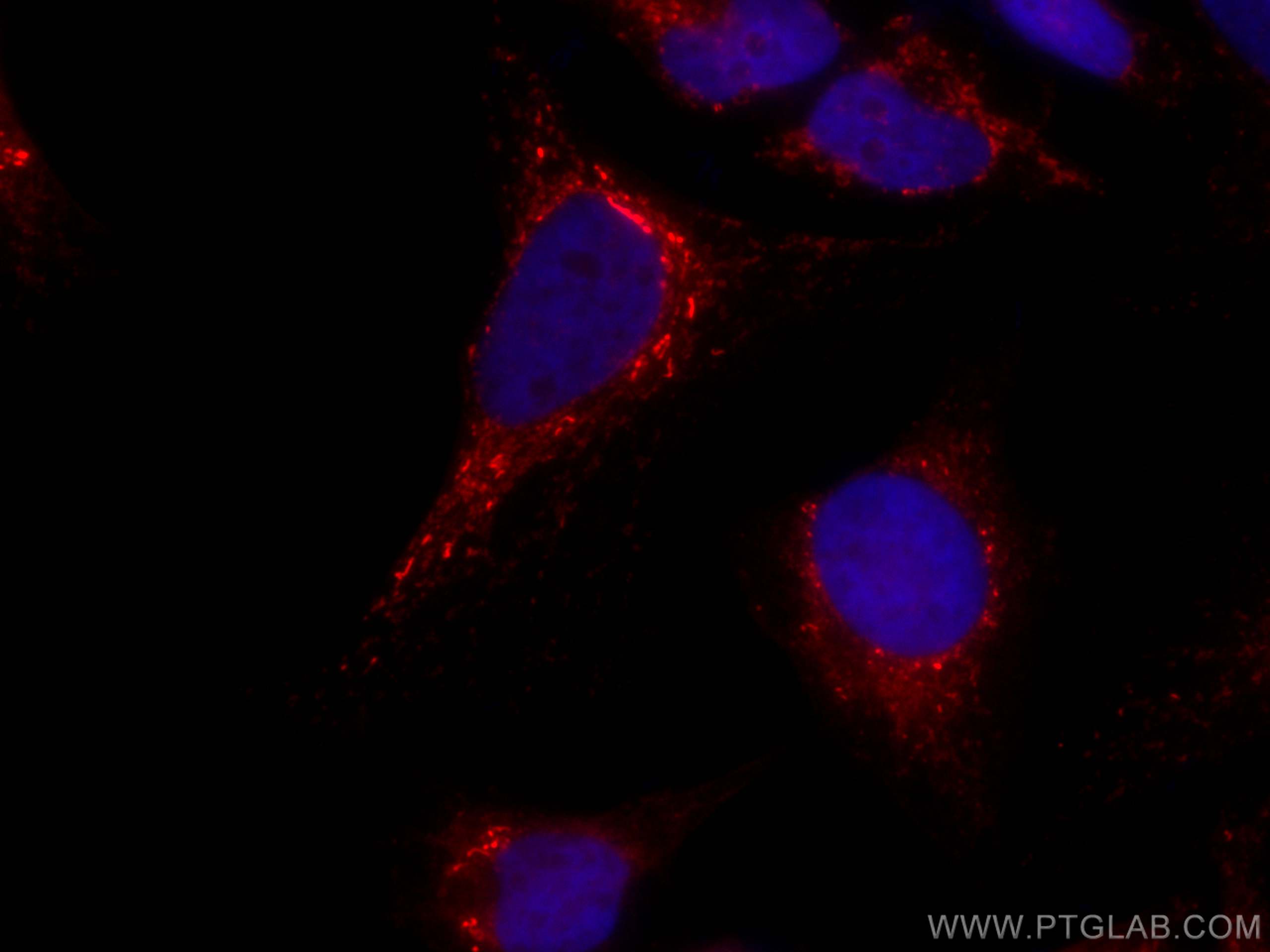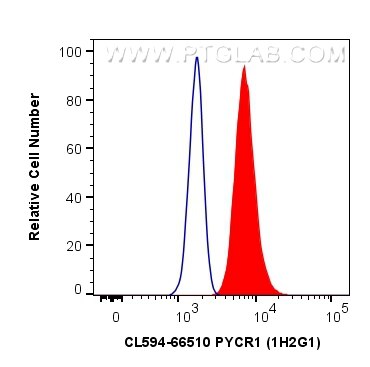Validation Data Gallery
Tested Applications
| Positive IF/ICC detected in | HeLa cells |
| Positive FC (Intra) detected in | HeLa cells |
Recommended dilution
| Application | Dilution |
|---|---|
| Immunofluorescence (IF)/ICC | IF/ICC : 1:50-1:500 |
| Flow Cytometry (FC) (INTRA) | FC (INTRA) : 0.40 ug per 10^6 cells in a 100 µl suspension |
| It is recommended that this reagent should be titrated in each testing system to obtain optimal results. | |
| Sample-dependent, Check data in validation data gallery. | |
Product Information
CL594-66510 targets PYCR1 in IF/ICC, FC (Intra) applications and shows reactivity with human, mouse, rat samples.
| Tested Reactivity | human, mouse, rat |
| Host / Isotype | Mouse / IgG2a |
| Class | Monoclonal |
| Type | Antibody |
| Immunogen | PYCR1 fusion protein Ag17919 相同性解析による交差性が予測される生物種 |
| Full Name | pyrroline-5-carboxylate reductase 1 |
| Calculated molecular weight | 319 aa, 33.8 kDa |
| Observed molecular weight | 33 kDa, 35 kDa |
| GenBank accession number | BC022244 |
| Gene Symbol | PYCR1 |
| Gene ID (NCBI) | 5831 |
| RRID | AB_2934730 |
| Conjugate | CoraLite®594 Fluorescent Dye |
| Excitation/Emission maxima wavelengths | 588 nm / 604 nm |
| Form | Liquid |
| Purification Method | Protein A purification |
| UNIPROT ID | P32322 |
| Storage Buffer | PBS with 50% glycerol, 0.05% Proclin300, 0.5% BSA , pH 7.3 |
| Storage Conditions | Store at -20°C. Avoid exposure to light. Stable for one year after shipment. Aliquoting is unnecessary for -20oC storage. |
Background Information
PYCR1,also named as P5CR1, belongs to the pyrroline-5-carboxylate reductase family. It is a housekeeping enzyme that catalyzes the last step in proline biosynthesis. PYCR1 can utilize both NAD and NADP, but has higher affinity for NAD. It is involved in the cellular response to oxidative stress. Mutation in PYCR1 will cause ARCL type II(ARCL2B ). Some mutation will cause DeBarsy syndrome (DBS) which is characterized by progeroid features, ophthalmological abnormalities, intrauterine growth retardation, and cutis laxa.
Protocols
| Product Specific Protocols | |
|---|---|
| IF protocol for CL594 PYCR1 antibody CL594-66510 | Download protocol |
| FC protocol for CL594 PYCR1 antibody CL594-66510 | Download protocol |
| Standard Protocols | |
|---|---|
| Click here to view our Standard Protocols |

